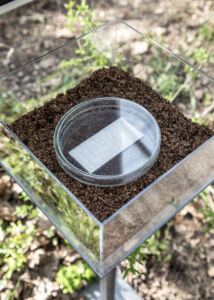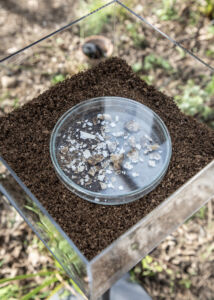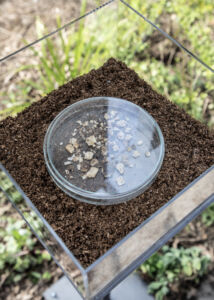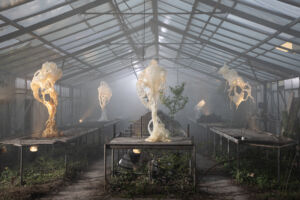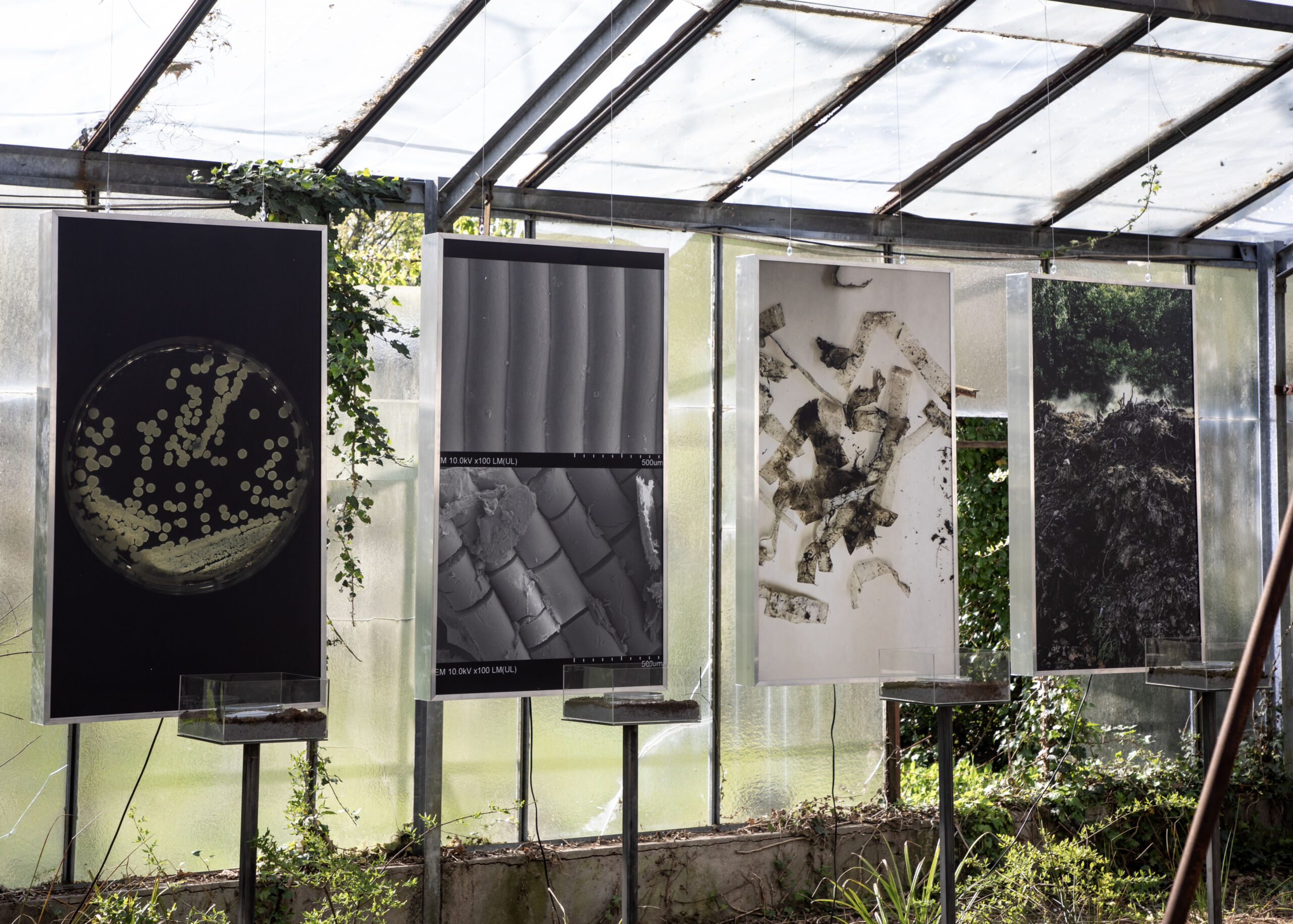In Łukasiewicz – IMPIB, the LIDER project was implemented, based on an innovative approach to the biodegradation of polylactide (PLA), a popular biopolymer used in the food industry, medicine and art, among others. Although PLA is considered an ecological polymer material, its natural decomposition in the environment is very slow. The innovative bacterial-enzymatic bioproduct POL-KOMP developed as part of the project allows for the acceleration of this process in composting conditions.
Studies have shown that after grinding PLA waste and exposing it to the developed POL-KOMP bioproduct in industrial compost, it completely decomposes into water and carbon dioxide within 12 weeks, which means that it is completely neutral to the environment.
What’s more, the compost obtained in this way not only eliminates the problem of PLA waste, but also becomes a valuable material supporting plant growth. During biodegradation, the substrate becomes moderately acidic, which is beneficial for acidophilic plants such as hydrangeas, heathers or thuja. In the conducted studies, it was observed that plants grown on compost created after PLA biodegradation were on average 30% higher compared to those growing in standard conditions.
The developed bioproduct POL-KOMP became the subject of cooperation between Łukasiewicz-IMPIB and the international design studio Marcin Rusak Studio Sp. z o.o. In the former Pasino greenhouses – a place that once pulsated with the life of white orchids – Marcin Rusak, with the participation of Łukasiewicz-IMPIB, creates Ghost Orchid, an immersive installation examining the fragile boundaries between the act of creation and the natural process of transience.
The presented sculptures, made of PLA biopolymers, with the participation of the POL-KOMP bioproduct can become part of the natural life cycle – after their use, they can become a valuable raw material (fertilizer) for agriculture and horticulture, improving soil properties and supporting plant growth. This innovative approach makes PLA not only a material, but an element of a sustainable system, combining art, science and ecology.
Research conducted at Łukasiewicz-IMPIB shows that properly directed biodegradation of polymers can have a wide range of applications, not only in environmental protection, but also in the agricultural and horticultural sectors. The POL-KOMP bioproduct is proof that science can provide practical, pro-ecological solutions that support a circular economy.
The POL-KOMP product was created as part of the project “Biopreparat accelerating the decomposition of biodegradable polymeric materials in compost” (no. LIDER/48/0247/L-12/20/NCBR/2021) financed by the National Centre for Research and Development (NCBR).
